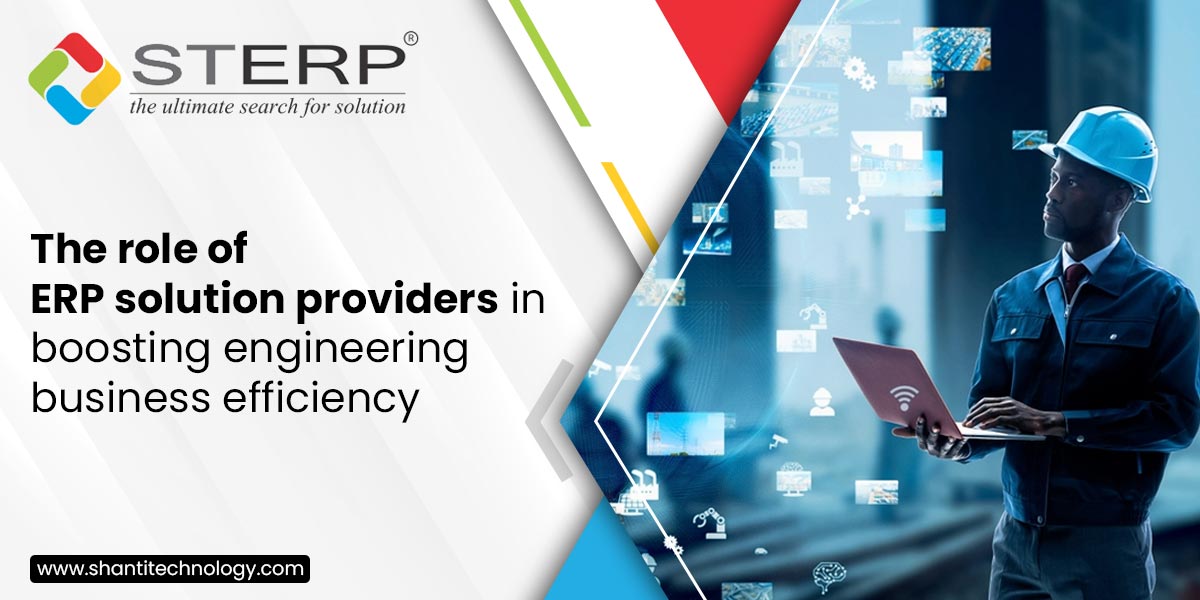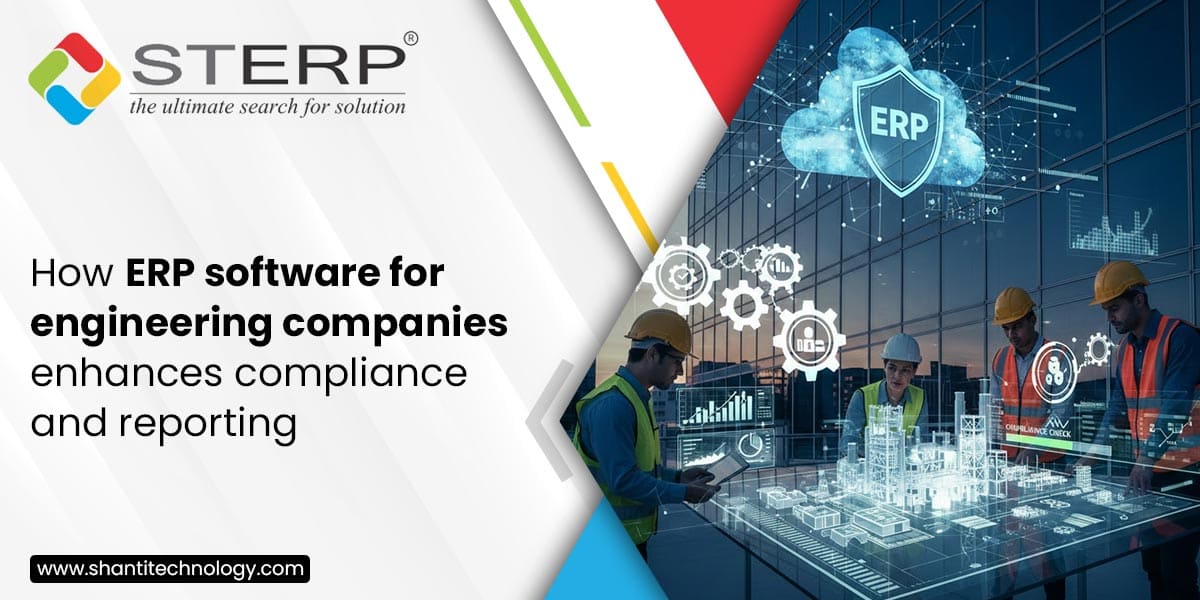
The engineering industry runs on precision, timelines, and control. Every delay, mismatch, or manual error can cost a business time and money. That’s why more engineering firms today rely on ERP solution providers in India to streamline their processes and stay ahead of the competition.
When managed well, an ERP system becomes the backbone of any engineering organisation. It ties every part of the business together, design, production, inventory, projects, finance, and even customer service, into one connected platform.
Let’s explore how ERP solution providers help boost efficiency, accuracy, and growth for engineering businesses.
1. Unifying Every Department:
Engineering companies often deal with multiple departments working on different tasks. Design teams use CAD software, production manages machines and materials, and finance handles cost control. When each team works separately, information gaps form.
An ERP system brings all these teams under one digital roof. Data flows from one stage to the next automatically. If a design changes, production and purchase teams get instant updates. This reduces confusion, errors, and delays.
By centralising data, ERP software for engineering companies removes silos and builds coordination. The result is smoother communication and faster decision-making.
2. Streamlining Project Management:
Project management is a daily challenge for engineering firms. Every project has strict deadlines, budgets, and client expectations. Keeping track of everything manually is risky.
ERP systems simplify project tracking. Managers can see progress in real time, assign resources, and monitor costs, all from one dashboard. They can plan better, predict risks early, and deliver projects on time.
A reliable Engineering ERP software company in Bangalore, like STERP, designs solutions that fit the specific needs of engineering project workflows. From tracking purchase orders to managing subcontractors, everything stays organised and transparent.
3. Improving Inventory and Resource Planning:
Running out of materials or overstocking both hurt business. Engineering companies handle thousands of parts, materials, and components, which makes manual tracking tough.
ERP software gives real-time visibility into stock levels, reorder points, and supplier performance. It prevents material shortages, helps control purchase costs, and ensures optimal use of resources.
When inventory data links with production schedules, it creates a balanced system. The right materials are available at the right time, reducing downtime and waste.
4. Enhancing Quality and Compliance:
Engineering firms work under strict industry standards and client requirements. Quality checks and documentation are not optional; they’re vital.
An ERP system maintains digital records of every stage, from raw material entry to final inspection. It keeps track of quality parameters and test reports. This makes audits smoother and ensures full compliance with industry norms.
If any defect occurs, ERP traceability tools help find the exact source quickly. This saves time in problem-solving and builds customer trust.
5. Strengthening Cost Control:
Engineering projects often run on tight budgets. One small oversight can affect profit margins. Manual data handling makes it harder to track costs across departments.
ERP software integrates finance, inventory, and production data to give a clear picture of where money is going. Managers can compare planned versus actual costs and make corrections early.
With better visibility, decisions become data-driven rather than guesswork. Over time, this improves profit margins and financial discipline.
6. Simplifying Customised Manufacturing:
Many engineering firms now produce custom parts and solutions based on client needs. Each order may require a unique design, material, or process plan.
ERP systems handle these complex requirements efficiently. They manage customised bills of materials, track version changes, and ensure that the right product reaches the client on time.
When an ERP connects design tools with production and supply chain data, the workflow becomes smooth and responsive. That’s where a trusted Engineering ERP software company in India, like STERP, makes a difference, by aligning technology with real-world manufacturing challenges.
7. Supporting Data-Driven Decision Making:
Engineering leaders need insights to forecast demand, evaluate performance, and plan future projects.
ERP systems collect and analyse data from every department. Custom dashboards show real-time reports on production, finance, and operations. These insights help managers identify patterns, spot issues, and act fast.
Better data means better control, and better control means higher efficiency.
8. Ensuring Mobility and Remote Access:
Modern engineering operations are no longer limited to one site. Teams work from plants, project locations, and even remote offices. Traditional systems fail to support this flexibility.
With cloud-based ERP platforms, authorised users can access data from anywhere, at any time. Whether it’s checking production status or approving a purchase order, work doesn’t stop when people are on the move.
This flexibility increases responsiveness and makes daily management simpler and faster.
9. Reducing Manual Work and Human Error:
Manual data entry and Excel-based tracking can only go so far. They take time, increase workload, and invite mistakes.
An ERP system automates repetitive tasks like data entry, approvals, and reporting. Employees spend less time on paperwork and more on productive work. Automation ensures accuracy and saves hundreds of man-hours each month.
This is how ERP software companies in India, like STERP, help businesses focus on innovation rather than administration.
10. Building Long-Term Scalability:
As engineering companies grow, their operations become more complex. More projects, more data, and more teams mean greater management challenges.
A well-designed ERP system grows with the business. It can handle more users, more projects, and more transactions without slowing down.
This makes ERP a long-term investment rather than a short-term fix. The system continues to deliver value even as the company expands.
11. Integrating with Other Tools:
Engineering businesses use many tools, CAD software, project planning apps, CRM systems, and accounting tools. If these don’t talk to each other, work gets duplicated.
ERP systems integrate all these tools into one ecosystem. Information moves seamlessly between design, production, and finance without manual effort.
Integration improves accuracy, avoids rework, and creates a connected workflow that enhances productivity.
12. Strengthening Customer Relationships:
Clients expect transparency, speed, and precision from engineering companies. ERP systems help businesses meet these expectations.
When customer data, project details, and delivery timelines are easily accessible, communication becomes smoother. Clients can get quick updates, accurate delivery dates, and better service.
Happy clients lead to repeat business, and that’s the true sign of efficiency.
Why Choose STERP?
STERP is a trusted name when it comes to ERP software for engineering companies in India. With years of experience, it understands how engineering firms work and what challenges they face daily.
Its ERP solutions are built to simplify complex processes, improve control, and help companies deliver on time, every time.
From small manufacturers to large engineering enterprises, STERP has earned its place as one of the most reliable ERP partners in the country.
Conclusion:
Efficiency is not just about doing things faster; it’s about doing them right. For engineering firms, every detail counts.
ERP systems make it possible to manage every process with accuracy, visibility, and control. With support from expert ERP solution providers in India, engineering businesses can achieve the perfect balance between performance, cost, and growth.
Recent Blogs

Top 5 Reasons for using ERP as a Project Management Software
Any business, no matter how big or little, may gain a great.....
More Info
How ERP Software For Engineering Companies Enhances Compliance And Reporting
Engineering work demands focus, accuracy, and trust. Every drawing, test sheet, approval note, and r.....
More Info
Industries that can benefit the most from an ERP System
STERP (Shanti Technology) is one of the most preferred ERP software companies in Madhya Pradesh that.....
More Info
Which one is better, On-Site ERP or Cloud ERP?
STERP (Shanti Technology) offers the most efficient ERP software for engineering companies in Rajkot.....
More Info
Why should you Upgrade your ERP system?
Businesses frequently become preoccupied with striving to increase profits and lose sight of the fac.....
More Info